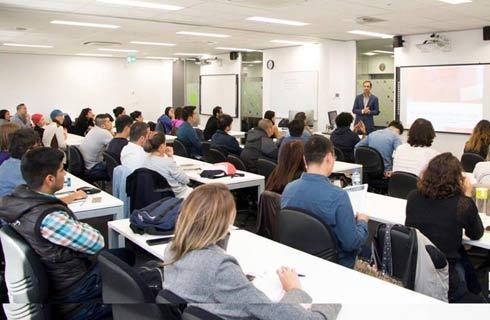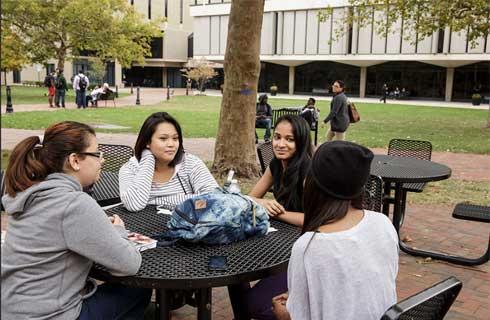政治学哲学博士-政治理论
Doctor of Philosophy in Political Science - Political Theory

学历文凭
Ph.D.

专业院系
Department of Political Science

开学时间

课程时长

课程学费

国际学生入学条件
IDP—雅思考试联合主办方

雅思考试总分
7.0
- 雅思总分:7
- 托福网考总分:80
- 托福笔试总分:160
- 其他语言考试:Duolingo English Test, the minimum score is 120.
CRICOS代码:
申请截止日期: 请与IDP联系 以获取详细信息。
课程简介
Our large theory faculty enables us to offer courses in the entire history of political thought: ancient, medieval, modern and contemporary. Faculty also have a strong interest in politics and literature, human rights, and feminist theory, among other topics. We encourage students to do course work in related disciplines, including Philosophy, Theology, Economics, History, and English. Theory students also have access to the faculty and fellows associated with special centers located on campus including the Notre Dame Institute for Advanced Study, the Center for the Study of Philosophy of Religion, the Center for Ethics and Culture, the Kellogg Institute for International Studies, the Kroc Institute for International Peace Studies, the Medieval Institute, the Nanovic Center for European Studies, and the Center for Civil & Human Rights in the Keough School of Global Affairs. Our students have written dissertations on a diverse range of topics such as friendship in political thought, ethical integrity and democratic citizenship, patriotism in a cosmopolitan age, Rousseau on commerce and mores, love and the passions in Augustine's political thought, the life of the mind in Hannah Arendt, natural right and the problem of natural justice, Montesquieu on law and morals, theories of immigration, the family in political life, and Plato's Cratylus, Republic, Laws, and Statesman.
相关申请
 预科
预科 奖学金
奖学金 实习机会
实习机会 在校学习
在校学习 跨境学习
跨境学习 校园授课-线上开始
校园授课-线上开始 在线/远程学习
在线/远程学习
开学时间&学费
学费信息仅供参考,请与IDP联系以获取详细信息
| 开学时间 | 时长 | 学费 | 地点 |
|---|
学校排名

世界排名173
数据源:
泰晤士高等教育世界大学排名
关于圣母大学

圣母大学是罗马天主教徒高等教育的圣杯,学校理事会的多数成员是天主教信徒和教职员工,圣母仍然致力于成为“一个保存天主教文化的社区”。总统和其他几位高层管理者都是全会圣十字的教士。每个宿舍都有自己的教堂,但不强制参加。有近82%的学生是天主教徒。1879年,一场大火将圣母大学整个校园付之一炬。事后,圣母大学的创建人Edward Sorin无比的镇定:“当我还是个年轻人的时候,我建了这所学校以纪念我们的圣母。可能是我把它建的太小了,圣母用一把火来提醒我。所以,当明天灰烬散去,砖瓦已凉之时,我们会立刻重建它,把它建的更大,更好!”这所天主教大学始终秉承互相尊重的原则,欢迎和接纳了无数拥有不同信仰,来自不同文化和宗教的学生。时至今日,圣母大学已然成为了美国最出色的20所大学之一。 圣母的研究经费从来是用不完的,这里有无数国家级的研究中心和设备。你可以在50英尺宽的穹顶欣赏宇宙边际的美景,也可以用太阳滤镜观察太阳的黑子活动。
本校相关课程

英美文学硕士
学历文凭
Masters Degree
开学日期
课程费用总额


Bachelor of Science in Science-Education
学历文凭
Bachelor Degree
开学日期
课程费用总额


Bachelor of Science in Science-Computing
学历文凭
Bachelor Degree
开学日期
课程费用总额


Bachelor of Science in Science-Business
学历文凭
Bachelor Degree
开学日期
课程费用总额


医学物理学理学士
学历文凭
Bachelor Degree
开学日期
课程费用总额


Bachelor of Science in Chemistry/Bachelor of Science in Computing
学历文凭
Double Major Degree
开学日期
课程费用总额

其他相关课程

政治学文学士/中等教育社会科学教育硕士
 德保罗大学-EC高等教育
德保罗大学-EC高等教育学历文凭
Combined Baccalaureate and Master's Prog
开学日期
课程费用总额










